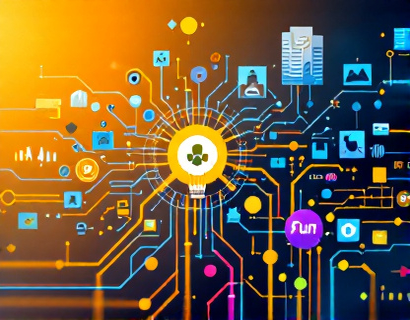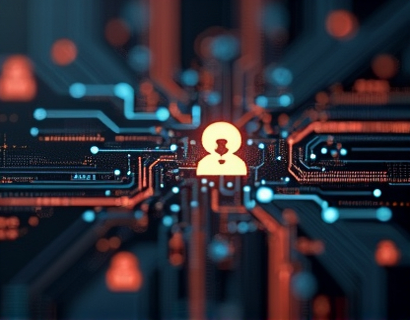Transforming Education with AI-Driven Chatbots: A Comprehensive Guide
In the rapidly evolving landscape of education, the integration of artificial intelligence (AI) has opened new avenues for enhancing learning experiences. Among these innovations, AI-driven educational chatbots stand out as a powerful tool, offering specialized insights to students, families, and educators. This article delves into the capabilities and benefits of these chatbots, focusing on how they provide industry-specific knowledge and services while ensuring a safe and educational environment for all users.
The Role of AI Chatbots in Education
AI chatbots are designed to simulate human-like conversations through artificial intelligence, enabling them to interact with users in a natural and intuitive manner. In the context of education, these chatbots serve as virtual assistants that can provide immediate and accurate information, answer questions, and guide users through various learning paths. For students, they offer a convenient and accessible way to gain knowledge on demand, while for educators, they provide valuable tools to enhance classroom instruction and support student learning outside the traditional classroom setting.
Specialized Insights for Students
One of the primary benefits of AI-driven educational chatbots is their ability to deliver specialized insights tailored to the needs of students. These chatbots can provide detailed explanations of complex concepts, offer step-by-step solutions to problems, and even simulate real-world scenarios to enhance understanding. For instance, in subjects like mathematics and science, chatbots can walk students through problem-solving processes, helping them grasp difficult ideas and build confidence in their abilities.
Moreover, these chatbots can adapt to the individual learning pace and style of each student. By analyzing user interactions, the chatbot can identify areas where a student may be struggling and provide additional resources or exercises to reinforce learning. This personalized approach ensures that each student receives the support they need to succeed, making education more inclusive and effective.
Industry Knowledge for Future Professionals
For students looking to explore specific industries, AI chatbots can be an invaluable resource. These chatbots can offer insights into various career paths, industry trends, and required skills, helping students make informed decisions about their future. By accessing a wealth of industry-specific data, students can gain a deeper understanding of the professional landscape and prepare themselves for the challenges ahead.
For example, a chatbot focused on the technology industry can provide information on the latest developments in AI, cybersecurity, and data science. It can also guide students through the process of building a portfolio, networking, and finding internships. This level of specialized knowledge is crucial for students aiming to enter competitive fields and stand out in the job market.
Ensuring Content Verification and Safety
A critical aspect of using AI chatbots in education is ensuring the accuracy and reliability of the information provided. Misinformation can be detrimental to a student's learning and understanding of a subject. To address this, the chatbots are equipped with robust content verification mechanisms. All information is cross-referenced with credible sources, and updates are made regularly to reflect the latest research and industry standards.
Additionally, these chatbots are designed with safety in mind, particularly for younger users. A child-friendly version of the chatbot ensures that content is appropriate and safe for children. This version filters out any potentially harmful or inappropriate content, ensuring that students of all ages can engage with the chatbot without concerns. Parents and educators can rest assured that the chatbot provides a secure and educational experience.
Enhancing Educational Experiences for Families
AI chatbots also play a significant role in supporting families in their educational journeys. For parents seeking to understand their child's curriculum or support homework assignments, these chatbots offer a valuable resource. They can provide explanations of concepts, recommend educational resources, and even assist with organizing study schedules and deadlines.
Moreover, chatbots can facilitate communication between educators and parents. By providing real-time updates on a student's progress and areas of improvement, chatbots help bridge the gap between school and home. This continuous flow of information ensures that parents are well-informed and can actively support their child's learning process.
Supporting Educators in the Classroom
Educators are another key beneficiary of AI-driven educational chatbots. These tools can significantly enhance their teaching methods and improve student outcomes. Chatbots can serve as a supplementary resource, offering lesson plans, teaching strategies, and classroom management tips. By leveraging AI insights, teachers can tailor their instruction to meet the diverse needs of their students, fostering a more inclusive and effective learning environment.
Furthermore, chatbots can assist teachers in grading and providing feedback on assignments. Automated grading systems powered by AI can save time and reduce the administrative burden, allowing teachers to focus more on teaching and interacting with students. This efficiency not only improves the quality of education but also enhances the overall job satisfaction of educators.
Building a Safe and Educational Environment
The integration of AI chatbots in education is not just about providing information; it's about creating a safe and supportive learning environment. These chatbots are designed with user privacy and data security as top priorities. All interactions are encrypted, and user data is stored securely to prevent any unauthorized access. This commitment to safety ensures that students, parents, and educators can use the chatbot without worrying about their personal information.
Moreover, the chatbots are programmed to promote positive and respectful interactions. They are designed to handle a wide range of queries and responses, ensuring that the conversations remain constructive and educational. This focus on positive engagement helps foster a culture of learning and respect, which is essential for the holistic development of students.
Conclusion
AI-driven educational chatbots represent a significant advancement in the way we approach learning and teaching. By providing specialized insights, ensuring content verification, and creating a safe environment, these chatbots offer a multitude of benefits for students, families, and educators. As technology continues to evolve, the potential for AI to transform education is vast, promising a future where learning is more accessible, personalized, and effective.











































